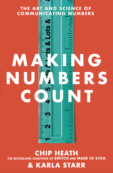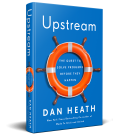Hey, just a forewarning that after today, the blog will go quiet until mid-March. Which reminds me of something: You may have noticed by now that my posting tends to be a bit infrequent and erratic. (Sadly, this is also the pace of my good ideas.) So if you check the blog regularly, you may find yourself annoyed that there ain’t much activity.
But wait — there’s a solution to this problem! See that little box to the right that says “enter your email address”? Just pop your email in there and you’ll get all the posts home-delivered, the same day that they go up. All the erratic stickiness with none of the annoyance! Presto.



